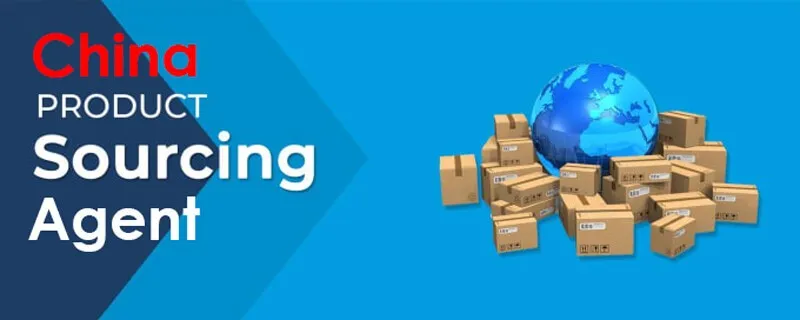Sourcing products from China can significantly reduce production costs and improve your company’s profit margins. However, navigating the complexities of international sourcing—especially in a country as vast and diverse as China—requires more than just online searches and supplier databases. A China sourcing agent can play a crucial role in bridging the gap between you and your Chinese suppliers, ensuring quality control, timely deliveries, and smooth communication. But how do you choose the right one?
This guide offers a comprehensive breakdown of what to look for when selecting a China sourcing agent, and how to ensure you’re working with someone who truly adds value to your supply chain.
What Is a China Sourcing Agent?
A China sourcing agent is an individual or company that helps foreign businesses find suitable suppliers or manufacturers in China. They act as intermediaries who manage the procurement process, negotiate prices, perform quality checks, and coordinate logistics. Their role is essential for companies that lack the time, language skills, or local knowledge to manage sourcing themselves.
Why You Need a Sourcing Agent
Sourcing directly from platforms like Alibaba might seem easy, but it comes with risks such as:
Language barriers
Unreliable suppliers
Poor product quality
Lack of compliance with international standards
Intellectual property risks
A professional sourcing agent helps mitigate these risks by providing local expertise, industry connections, and hands-on management.
Key Factors to Consider When Choosing a China Sourcing Agent
1. Experience and Industry Knowledge
Look for agents who have been in the business for several years and specialize in your product category. An agent with a deep understanding of your industry will have better supplier networks, negotiate more effectively, and anticipate potential pitfalls.
Tips:
Ask about the number of years they’ve been sourcing.
Inquire about their experience with specific product types.
Request case studies or examples of past work.
2. Location and Supplier Network
A good sourcing agent should be based in China, preferably close to the manufacturing hubs like Shenzhen, Guangzhou, Yiwu, or Hangzhou. Proximity allows them to perform regular factory visits and develop closer relationships with suppliers.
Tips:
Ask where their main office is located.
Find out which provinces or cities they primarily operate in.
3. Transparency and Communication
Clear, timely communication is crucial when working across time zones and cultures. A trustworthy agent will be transparent about pricing, sourcing procedures, and supplier details. Avoid agents who are vague or unwilling to disclose manufacturer information.
Tips:
Evaluate their English or your preferred language skills.
Ask how frequently they’ll provide updates.
Confirm whether they’ll share factory contact information if needed.
4. Quality Control Services
Quality assurance is one of the biggest advantages of hiring a sourcing agent. A reliable agent should offer product inspections at various stages of production—before, during, and after manufacturing.
Tips:
Ask about their quality control checklist and inspection process.
Find out if they partner with third-party inspection agencies.
5. Supplier Verification and Auditing
The right agent doesn’t just find any supplier—they verify the legitimacy and capabilities of the manufacturers they recommend. This includes checking business licenses, production capabilities, and compliance with international regulations.
Tips:
Request a sample supplier audit report.
Ask how they verify a supplier’s credentials.
6. Ethical Standards and Compliance
Ensure your agent adheres to ethical sourcing practices, particularly if you’re in industries like apparel, toys, or electronics where labor laws and safety regulations are critical. Agents should be able to confirm that suppliers meet local labor laws, environmental guidelines, and international standards.
7. Pricing and Fees
Sourcing agent fees vary. Some charge a percentage of the order value (commonly 5–10%), while others use flat-rate or hourly billing. Avoid agents who seem unusually cheap—they might cut corners or work on commission from suppliers, creating a conflict of interest.
Tips:
Clarify whether the agent is paid by you or the supplier.
Ask for a detailed quote, including hidden fees.
8. References and Reviews
Always ask for client references and look for online reviews or testimonials. Speaking with past clients can give you insights into the agent’s reliability, professionalism, and performance.
Tips:
Request contact details of two or three past clients.
Look up independent reviews on forums or B2B platforms like Alibaba, Global Sources, or Trustpilot.
9. Logistics and Shipping Knowledge
A qualified sourcing agent should also be well-versed in international shipping, customs regulations, and Incoterms. They can help you choose the best logistics partners, advise on tariffs, and ensure your goods are delivered safely and on time.
Tips:
Ask about their experience with shipping to your country.
Check if they offer end-to-end supply chain services.
10. Cultural Fit and Business Ethics
Doing business in China is as much about relationships (“guanxi”) as it is about price and quality. Your agent should be someone who understands and respects both Chinese and Western business cultures and can serve as a bridge between the two.
Tips:
Evaluate how well they understand your business needs and values.
Assess their willingness to act in your best interest—even if it means challenging a supplier.
Common Mistakes to Avoid
Hiring based only on low fees: Cheaper is not always better. You get what you pay for.
Failing to sign a contract: Always have a written agreement outlining responsibilities, payment terms, and confidentiality.
Not conducting due diligence: Always verify credentials, references, and licenses.
Allowing the agent to own the supplier relationship: Retain the ability to contact suppliers directly if needed.
Final Thoughts
Choosing the right China sourcing agent can make or break your import business. A competent and ethical agent can save you time, money, and countless headaches. On the other hand, a poor choice can lead to miscommunication, inferior products, and lost opportunities.
Do your homework, ask the right questions, and prioritize experience, transparency, and professionalism. When you find the right partner, you’ll gain far more than a vendor—you’ll gain a trusted ally in your global supply chain.

